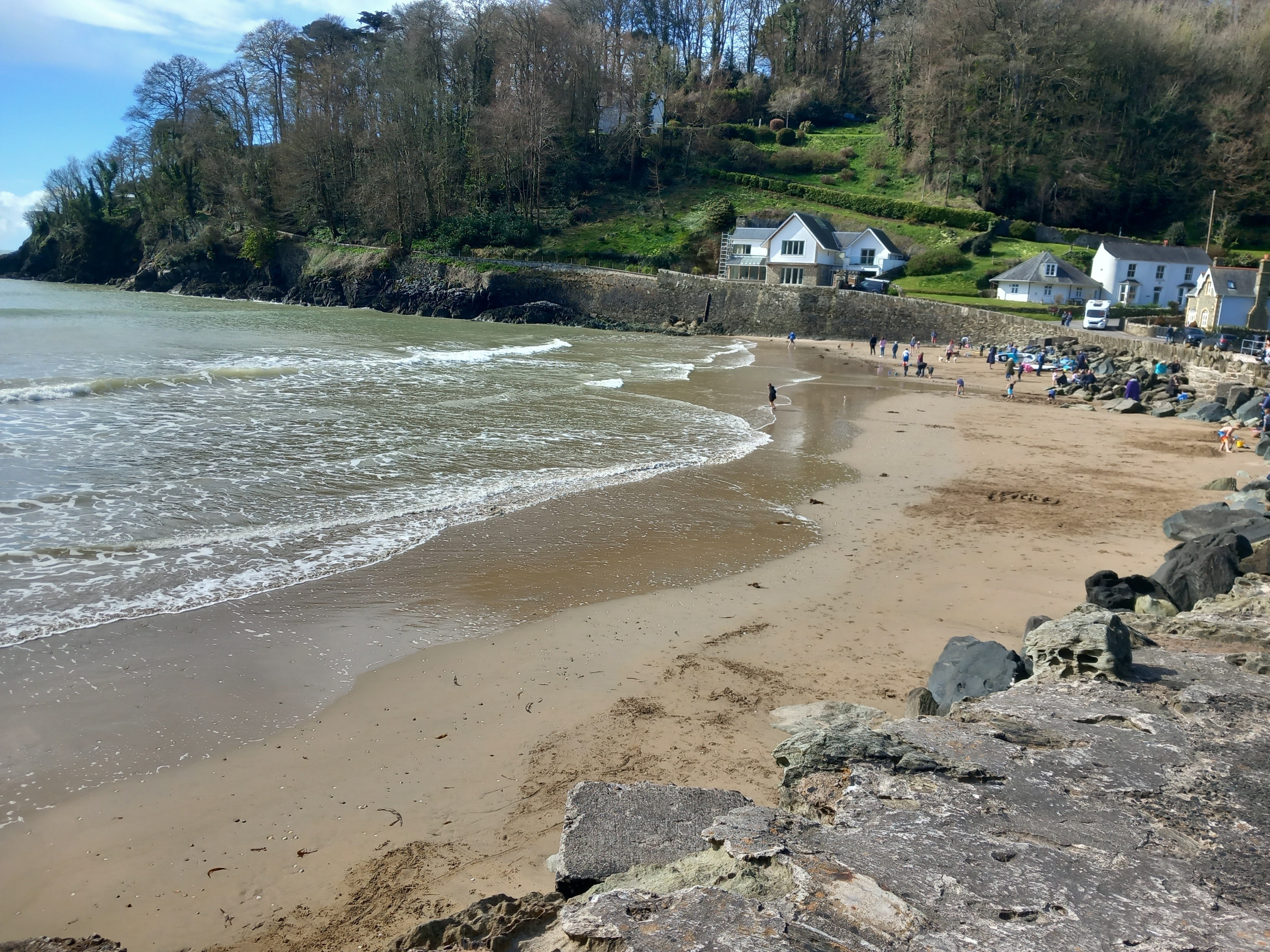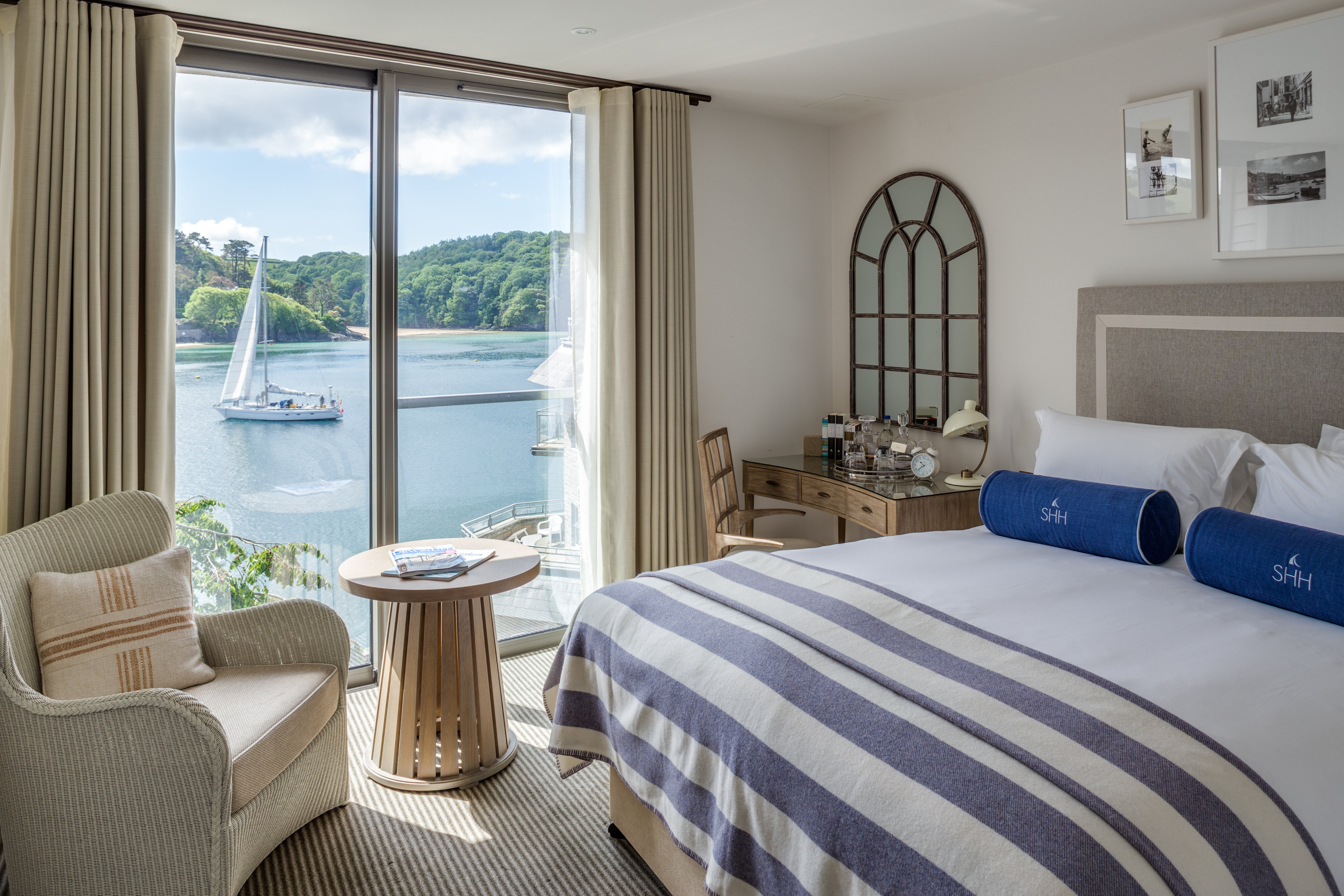What to do on a trip to Salcombe, south Devon’s hottest ticket
There’s a reason this is now the UK’s most expensive seaside town, finds Lucy Daltroff; here’s how to make the most of a visit

“It’d better be good,” said my husband, somewhat ominously, as we drove down narrow, potholed lanes to our accommodation for the night in Salcombe, South Devon.
But as the rain relented, allowing us to finally appreciate the sublime coastal views over the Kingsbridge Estuary, we forgot the roads and began to understand why, in a recent Halifax survey, this picturesque place was named the most expensive seaside town for property in the UK.
The average price for a home here currently stands at £1.25m, marking an increase of 123 per cent since 2012. In part, it’s surely that Salcombe appeals to many different tastes: watersports enthusiasts, boat owners and walkers all flock here, thanks to its position on the South West Coast Path. Meanwhile, upmarket boutique shops on the attractive main street cater for sophisticated tastes, selling clothes, sports equipment, antiques and locally made ice cream. It eventually leads into Island Street, dotted with small businesses set up in converted boat sheds.

Boating is an important part of Salcombe’s character, and it’s possible to either rent your own boat or hire a private cruise. Alternatively, two lovely days out can be spent using the ferries that operate from the centre of town: one to East Portlemouth and the other to South Sands Beach. For South Sands, you can go one way and later walk back, but East Portlemouth is a return as it’s on the opposite side of the estuary (so it’s important to know the timetable for the way back). The sandy beach is excellent, and both trips have the added bonus of getting a real view of some of the stunning homes along the water; they almost seem as if they’ve been incorporated into the rock face.
We took a scenic walk along the main Cliff Road to the inlet of North Sands, children running in front of us all the while and swinging their buckets and spades in joyful anticipation of the sandy beach. This lovely bay provides a safe area for swimming and, as an added plus, is topped with a magnificent view of a ruined castle. Local café the Winking Prawn is perhaps best known for its Mediterranean-style dishes and seafood platter, with scallops, crab, prawns and mussels, while we ate at the atmospheric Victoria Inn, a cosy pub frequented by locals overlooking the estuary. In winter it’s known for its roaring fires.
Read more on UK travel:
Elsewhere, we checked out another factor that could help explain Salcombe’s surge in popularity and subsequent price rise: its A-class beverage game.
We headed to Salcombe Distillery to attend a pre-booked rum-making session. Interestingly, our teacher, Jason Nichols, chief distiller and former chilli farmer, had just returned from installing a distillery on the new ship “Arvia” – P&O’s first gin distillery at sea. As Jason escorted us around the premises, built in 2015 to strict specifications, he threw in another sea connection: “This is one of the world’s only distilleries directly accessible by boat”.
We began to understand why this picturesque place was named the most expensive seaside town in the UK
Co-founders Angus and Howard started the company in 2014 and now produce an array of award-winning drinks. Their gin school began six years ago and has been so successful that, this January, they expanded to include rum making.
Our experience kicked off with a long glass of their Island Street rum mixed with ginger ale (always fun to start as you mean to go on), before we were taken to the Still room to learn how production happens – by fermenting molasses and sugar into an alcoholic wash. Next, it was upstairs to the lab to choose a mix of spicy and sweet botanicals from an extensive selection. Our choice included sour cherry, coconut, cinnamon and kaffir leaves; it was exciting to add them to our small, allocated Still and wonder what on earth the end product would taste like. Finally, we printed a personal label to affix to our bottle and left the premises holding a white wooden presentation box for our newly created 70cl of rum. The session costs £160 per couple and includes three cocktails per person and a bottle of bespoke rum to take home.
Some of the “shorts” mixers used in the distillery are from local producer Luscombe Drinks, based just a half-hour drive north in Buckfastleigh. Luscombe’s owner and founder, Gabriel David, grew up living three miles along a single-track maze of lanes. As his social life was inextricably linked to being able to drive to see friends, ordering soft drinks in pubs was the order of the day. After endless glasses of lime, soda and Britvic 55, he decided to create better-tasting soft drinks, and in 1997 took over his father’s small cider company, diversifying into producing pure organic soft drinks. He hasn’t looked back; clients include King Charles at Highgrove and The National Trust.

They produce 12 different flavours, including Elderflower Tonic Water and English Apple Juice, alongside their most recent edition, Rose & Cherry non-alcoholic fizz. Produced to celebrate the king’s coronation, it takes inspiration from the rose that features in the emblem and is a blend of organic rose and cherries, naturally sweetened with muscat grape and finished with Sicilian lemons plus Devon spring water – with perhaps a guarantee of more fizz than just a vegetable quiche...
Travel essentials
Staying there
Salcombe Harbour Hotel is a luxury boutique and spa, with five treatment rooms, an indoor pool, hot tub, sauna and fitness area, positioned on the edge of Salcombe Estuary
More information
Visit fooddrinkdevon.co.uk, which represents more than 350 of Devon’s leading food and drink producers, retailers, and hospitality venues.
Read more of our best Devon hotel reviews
Join our commenting forum
Join thought-provoking conversations, follow other Independent readers and see their replies
Comments
Bookmark popover
Removed from bookmarks